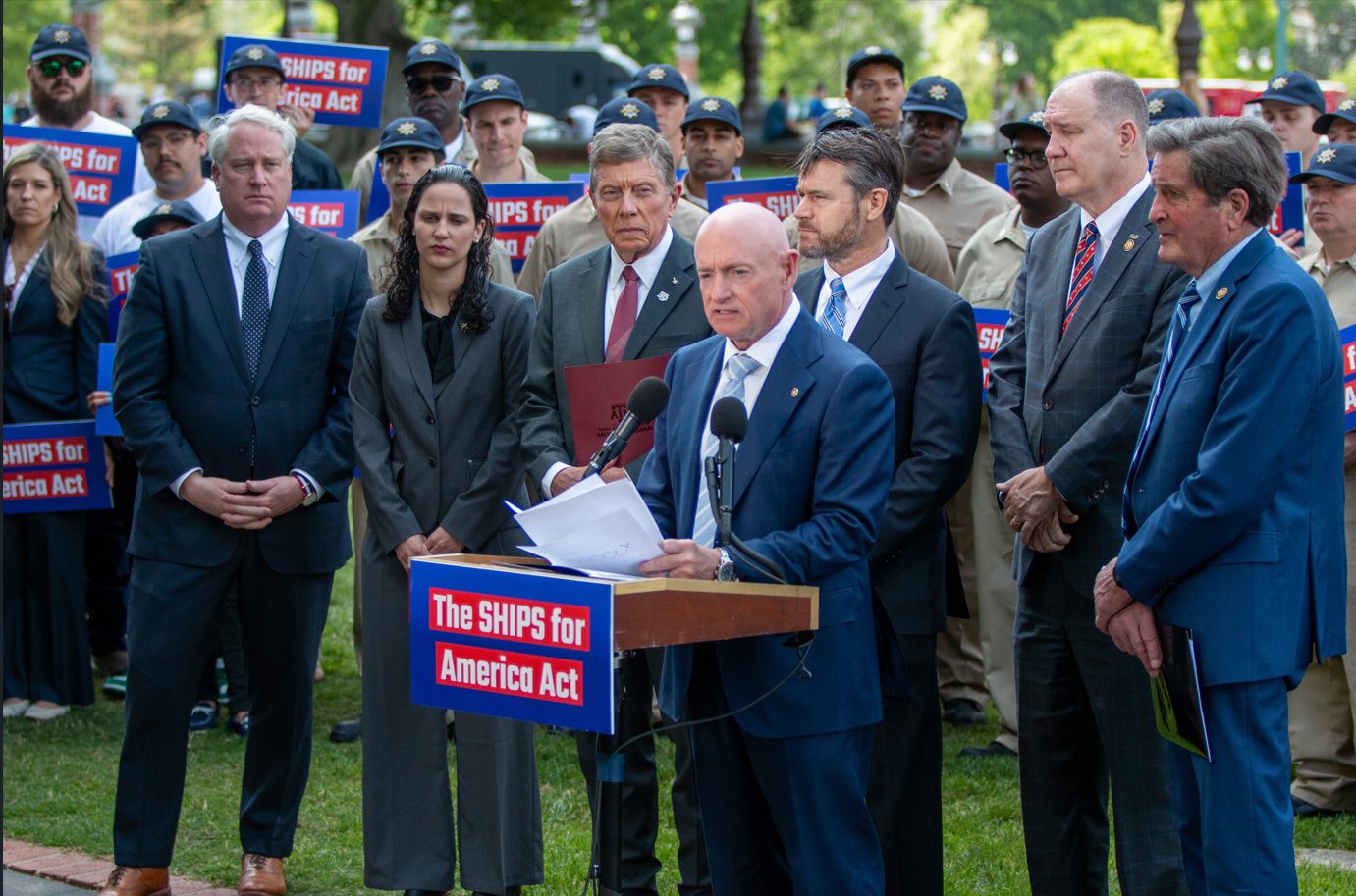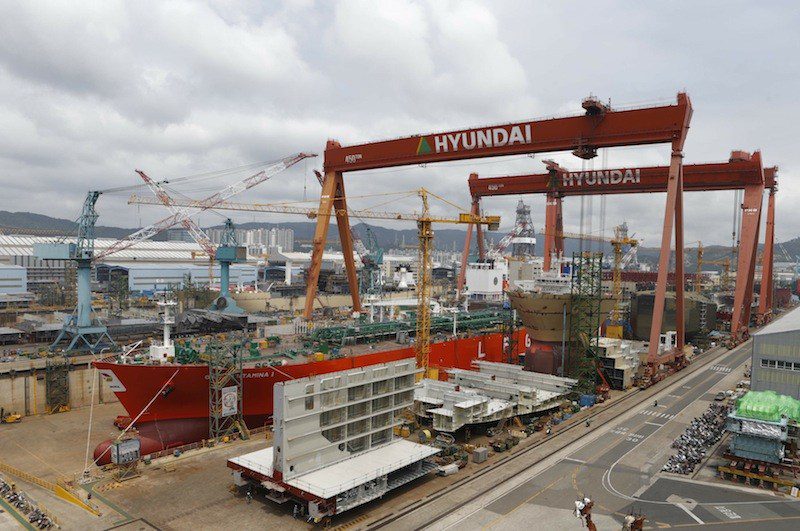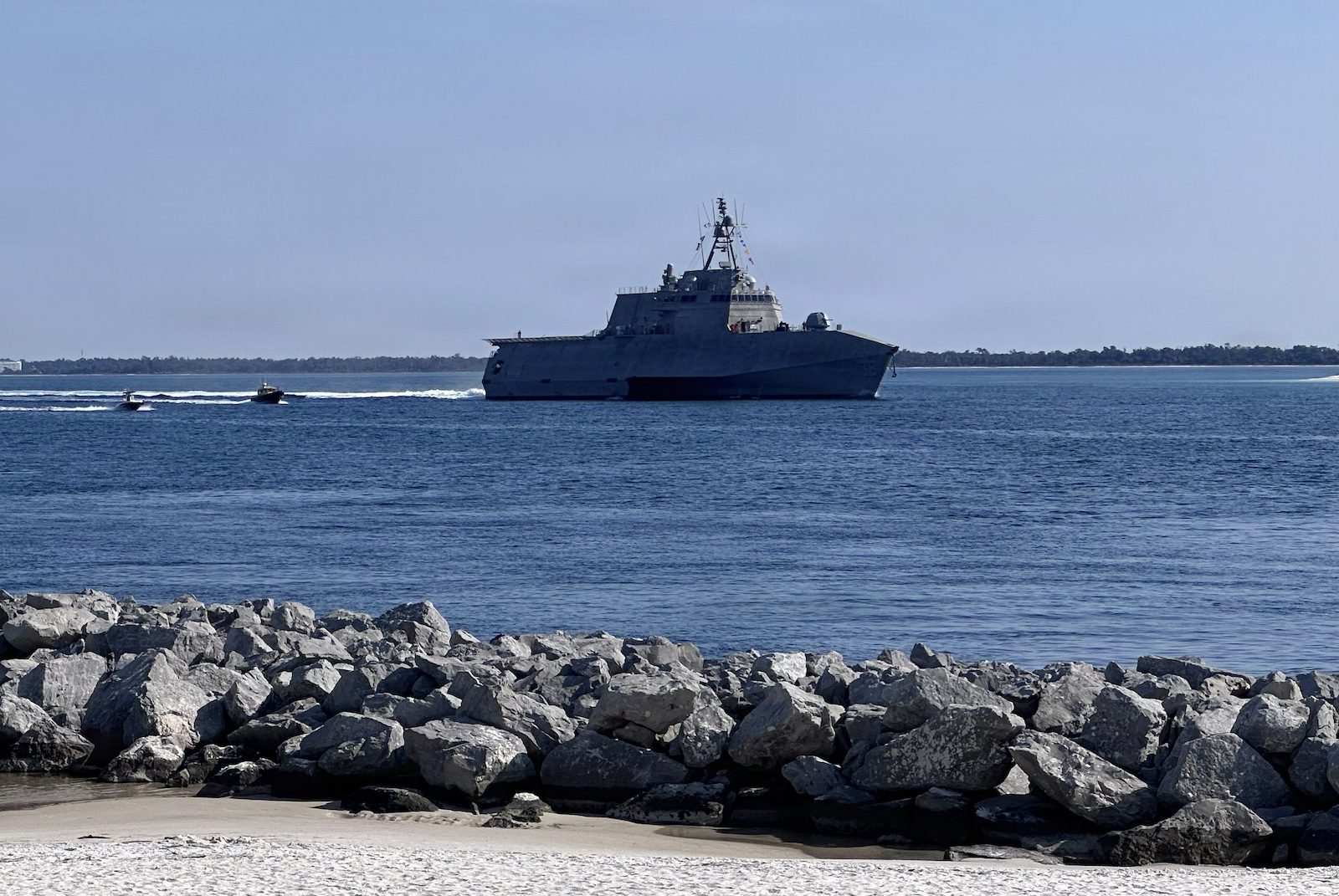An unprecedented Pentagon threat has erupted just as Washington attempts its boldest shipbuilding revival in decades, raising doubts about whether the administration’s maritime strategy can survive its own political turbulence.
The Pentagon’s extraordinary threat to recall Senator Mark Kelly to active duty for prosecution has raised new doubts about the Trump administration’s maritime revival agenda, coming just weeks after the suspension of port fees widely viewed as central to that strategy.
On November 24, the Pentagon said it was reviewing “serious allegations of misconduct” against Kelly, a retired Navy captain and Arizona senator, after he and five other military-veteran Democrats urged U.S. troops to refuse unlawful orders. Defense Secretary Pete Hegseth accused the group of sedition, calling their video “despicable, reckless, and false” for “encouraging our warriors to ignore the orders of their Commanders.”
The message, released November 18, appeared to be in response to concerns that the administration had ordered deadly military strikes on suspected drug traffickers in Latin American waters in violation of U.S. law. In response, President Trump himself accused Kelly of sedition, emphasizing in a social-media post that the crime is punishable by death.
Kelly, a decorated combat pilot and former NASA astronaut, pushed back forcefully: “I’ve given too much to this country to be silenced by bullies who care more about their own power than protecting the Constitution.”
The political clash comes at a pivotal moment for the domestic maritime industry. Kelly is one of the Senate’s leading advocates for rebuilding American shipbuilding capacity. Alongside Senator Todd Young (R-IN), he co-sponsored the SHIPS for America Act, re-introduced in April 2025, which aims to revitalize the U.S. shipbuilding industry and expand the American-flagged commercial fleet. The Act proposes a Strategic Commercial Fleet Program to expand the U.S.-flag fleet to 250 ships, 100% U.S.-flag requirements for all government cargo, and new cargo-preference rules requiring some commercial goods from China to move on U.S.-flag vessels starting in 2030.
In October, three maritime experts urged the Senate Subcommittee on Coast Guard, Maritime, and Fisheries to pass the SHIPS Act, telling the committee that the United States faces an urgent need to rebuild commercial shipbuilding after decades of Chinese industrial targeting and domestic maritime decline.
The hearing examined President Trump’s “Make Shipbuilding Great Again” initiative within the National Security Council and previewed elements of the administration’s Maritime Action Plan—a pillar of the President’s April executive order, Restoring America’s Maritime Dominance.
During the hearing, Professor Salvatore Mercogliano of Campbell University told lawmakers that the SHIPS Act—paired with the now-suspended Section 301 maritime port fees and the April shipbuilding executive order—constituted “the most significant U.S. maritime reform since 1970,” effectively a “long overdue Merchant Marine Act of 2025.”
Following the hearing, Senators Kelly and Young released a joint statement underscoring “growing, bipartisan momentum to rebuild American shipbuilding,” saying the bill would “revitalize our maritime and shipbuilding industries, create good-paying jobs, and counter China’s dominance over the oceans.”
Port Fee Suspension
The Kelly controversy also follows the November 10 suspension of USTR’s maritime-targeted Section 301 port fees, paused for one year as part of a Trump-Xi trade agreement. The fees had been in place less than a month.
Labor unions and industry experts immediately warned that the suspension undercut the administration’s own maritime policy. In joint comments, USW, IAM, IBEW, and IBB representatives wrote that workers and shipyards were once again being “sidelined” despite months of strong rhetoric about rebuilding maritime strength.
Hunter Stires of the Navy League’s Center for Maritime Strategy called the decision a “significant strategic mistake.”
The port fees had been designed as the trade-policy backbone of the administration’s maritime revival—complementing the Restoring America’s Maritime Dominance executive order and the SHIPS Act.
The U.S. Trade Representative says it will reassess the suspension before the 2026 deadline. Yet with political controversy sharpening around military policy—and a key maritime champion now at the center of a Pentagon legal threat—the long-promised revival of America’s maritime power looks increasingly uncertain.

 Join The Club
Join The Club











